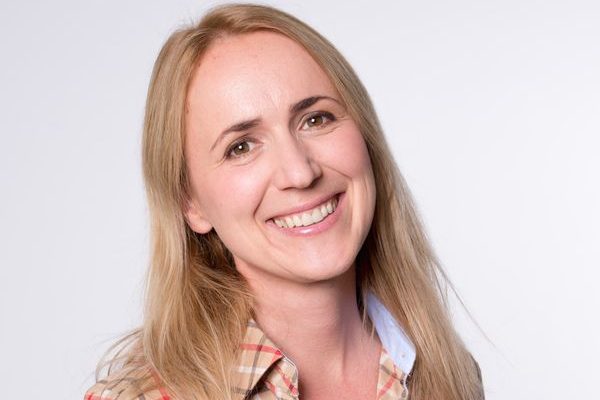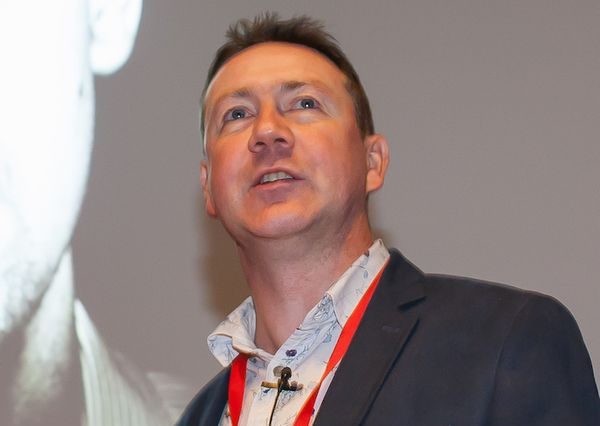
Expert View: New strategic alliances formed between life science research and philanthropy
September 26, 2016
Your Voice: Why fundraisers in Croatia need an industry body
September 26, 2016Charity data practices may be in for radical change, but this could be the sector’s salvation, says Damian O’Broin of Ask Direct. Damian sets out his views on what charities can do to adapt to the age of consent.
When I’m asked who the most influential person in fundraising is, my current answer is not a famous consultant or a brilliant director of fundraising.
In fact, it’s not someone who has anything much to do with fundraising at all.
It’s Edward Snowden.
Yes, that Edward Snowden.
Snowden’s revelations about intrusions into private data by government and big businesses have crystallised a growing concern people have about their privacy, their data and how it is used and abused. Suddenly data protection is a mainstream issue and not a nerdy niche interest.
And suddenly, everyone is concerned about who they’re sharing data with and what those people and organisations are doing with it.
You can trace a direct line from Snowden to the fall of the ‘safe harbour’ model for the transfer of data out of the EU and to the new EU regulations around data protection.
All is changed. And for a charity sector that is struggling with trust issues, it is changed utterly.
But you know what? This is a good thing. In fact it can be our salvation. Because many of the trust issues we’ve been struggling with relate directly back to our negligence around consent.
The absence of “no” doesn’t equate to “yes”
Look at the reports into the fundraising abuses in the UK following the tragic death of Olive Cooke. Charities failed to follow basic data protection rules around opt-out and communications preferences. Not only were donors’ wishes not respected, we never thought to ask what they wanted in the first place.
For too long in fundraising we’ve taken the absence of “no” to mean “yes”. We’ve been more concerned with data capture than with securing the enthusiastic consent of our donors to engage them in work and invite them to share in our journey to make the world a better place.
It’s a new world now. But there’s no need to be afraid. Because we can make this work. For both donors and charities.
Think about enthusiastic consent
First of all, we have to change our mindset. Instead of thinking of data capture and acquisition, we need to think about enthusiastic consent. So, don’t ask “how can we capture their phone number”. Instead ask “how can we inspire them so that they want to share their phone number”.
We never seem to think about what the donor gets from this process, whether that’s a sense that they’re part of a movement, or simply a nice gift.
Have you ever offered an incentive to donors to sign up? We recently developed an online lead generation campaign for Dogs Trust Ireland. People were asked to add their name to a promise not to give a puppy as a Christmas gift. We included this text:
Here’s a deal for you: fill in your mobile number and allow us to call you (don’t worry, we’ll only call you once) and in return we’ll send you a voucher for 10% off purchases at our online shop this Christmas.
Straight, simple, honest and to the point. And over 50% of people shared their telephone number with us. Way beyond our expectations.
Think outside of the box
The second thing we need to do is get away from our obsession with tick boxes and clumsy and confusingly worded consent messages.
You are not required to have a tick box. What you are required to do is obtain unambiguous, explicit and freely given consent. And it can often be better and easier to do this without a tick box.
For instance, in that same campaign for Dogs Trust, we also asked for email addresses. But we didn’t make the email field a required field. Instead we clearly stated “By entering your email you’re agreeing to receive occasional emails from Dogs Trust.”
People were free to leave it out if they wished, but over 90% of people included their email, freely and without the need for a tick box.
So let’s embrace this new Age of Consent. Let’s start thinking about inspiring supporters to join our journey and what they might want from the interaction rather than figuring out how to capture their data. And lets start thinking about how we can get away from official bureaucratic forms and create interactions that make it easy and seamless for donors to sign up and join up.
Top Tips
Here are five top tips for embracing the new age of consent:
1. Put yourselves in the donor’s shoes. Why would they want to share their personal information with you? What do they get out of it?
2. Ensure that you always secure explicit, unambiguous and freely given consent, compliant with data protection regulations, at all times. This may be opt-in or it may be opt-out, depending on local regulations and the channel of communication used.
3. Think beyond tick boxes. There may be other, more user-friendly ways of securing consent.
4. Use the learnings from psychology and behavioural economics to develop forms that make it as frictionless as possible to opt-in.
5. Let go. Ultimately the donor is in control. Embrace that and learn to be comfortable with it.
About Damian O’Broin
Damian O’Broin is the founder and director of Ask Direct, Ireland’s leading fundraising and direct marketing agency. He has 20 years’ experience helping nonprofits and charities to tell their stories, recruit supporters and raise money. He believes that convincing lots of ordinary people to support your cause is vital if you want to achieve your goals and build a sustainable organisation in the process. He is a regular speaker at conferences and tweets extensively @damianobroin (sometimes even about fundraising).




